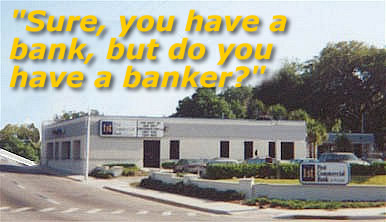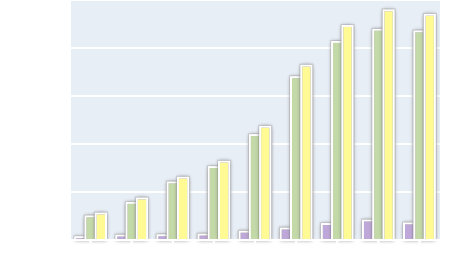January 7, 2010 – The first banking failure of 2011 occurred today in Florida, a state which has seen numerous banking failures due to collapsing real estate values.
The Florida Office of Financial Regulation closed the First Commercial Bank of Florida, located in Orlando and appointed the FDIC as receiver. The FDIC, acting as receiver, sold First Commercial to First Southern Bank, Boca Raton, Florida. First Southern will assume all deposits of failed First Commercial. The nine branches of First Commercial will reopen on Monday as branches of First Southern and all depositors of First Commercial will automatically become depositors of First Southern.
First Commercial Bank of Florida was a relatively new bank, established in 1999. The bank expanded very rapidly with assets exploding from less than $100 million in 2000 to almost $750 million in 2008. First Commercial was an aggressive lender, expanding its loan portfolio aggressively as property markets were reaching peak bubble levels.
In April 2009, in an effort to improve declining capital ratios, FCB Florida Bancorporation, Inc., parent company of First Commercial Bank of Florida, and Anderen Financial, Inc. parent company of Anderen Bank, jointly announced the signing of a definitive merger agreement. Subsequently, the merger agreement was never completed as previously reported (see comments). Anderen Bank of Palm Harbor, Florida (formerly known as Anderen Bank of Tampa Bay) remains an independent bank and has very strong capital ratios according to the latest FDIC performance and condition ratios.
According to First Commercial Bank’s website, the bank was owned by over 400 Central Florida stockholders.
As the property bubble burst in Florida, the result for First Commercial Bank was catastrophic as aggressive loans turned into defaulted loans at an alarming rate. First Commercial Bank had an untenable troubled asset ratio of 478% compared to a national average of 15. Once the troubled asset ratio exceeds 100%, a bank usually fails.
The Federal Reserve issued First Commercial a Prompt Corrective Action directive in October 2010 due to the Bank being “significantly undercapitalized”. First Commercial Bank of Florida was ordered to raise additional capital within 45 days. Unable to comply with the order, regulators had no choice but to close First Commercial.
At September 30, First Commercial Bank had total assets of $598.5 million and total deposits of $529.6 million. First Southern did not pay a premium to the FDIC for the deposits of First Commercial. First Southern also agreed to acquire all of the assets of failed First Commercial subject to a loss-share transaction with the FDIC that covers $484.3 million (81%) of the acquired assets. The loss-share transaction protects First Southern from losses on the acquired assets. According to the FDIC, the use of loss-share transactions minimizes loss to the Deposit Insurance Fund by keeping assets in the private sector.
The acquisition of First Commercial is the second acquisition of a failed bank by First Southern Bank in the past year. First Southern also purchased failed Haven Trust Bank Florida of Ponte Vedra Beach in September 2010.
First Commercial Bank of Florida is the first banking failure of 2011 and will cost the FDIC Deposit Insurance Fund $78.0 million.


First Commercial did not merge with Anderen Bank. That merger was not approved by the Feds and never happened. Anderen has since merged with another different Bank
Thanks for the info. The merger agreement between the two banks was never completed.